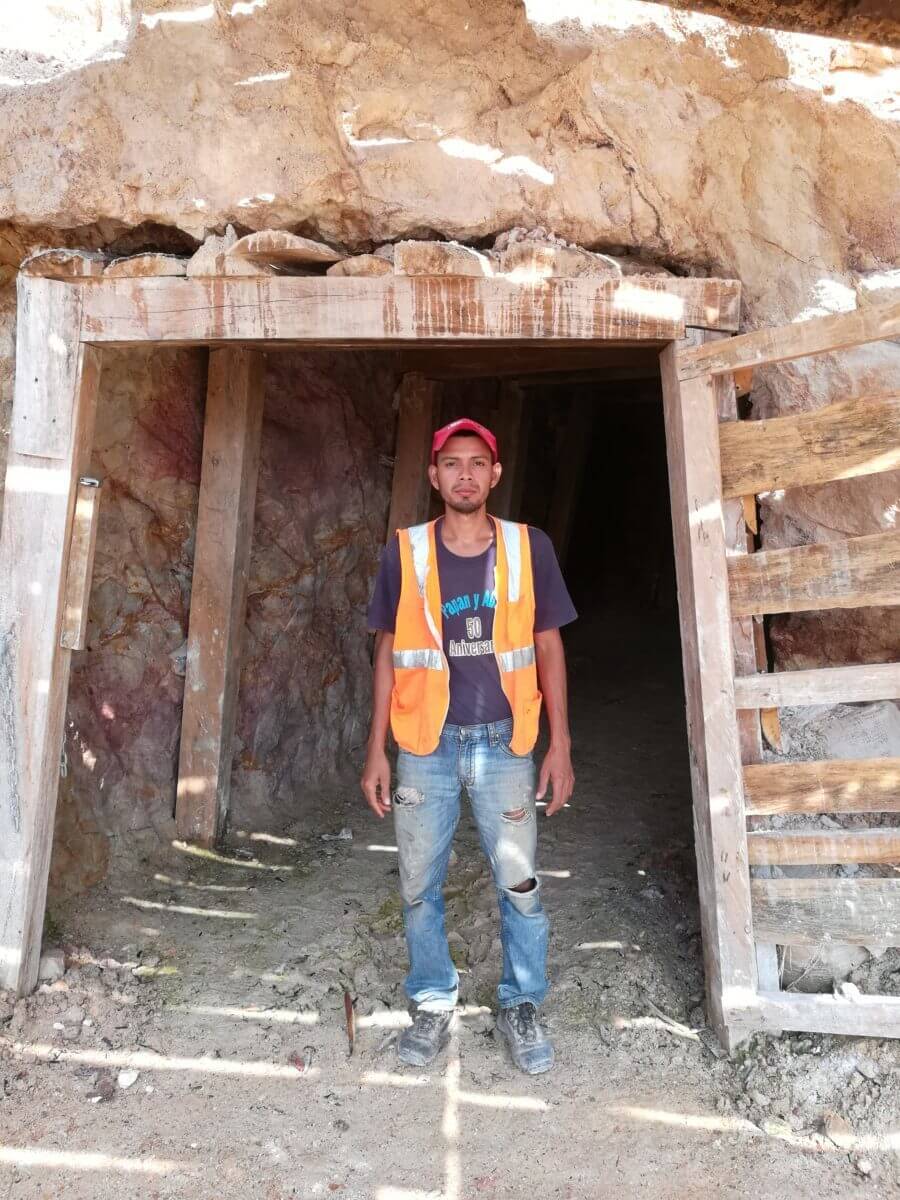Community stories
Darwin Sevilla

In search of the lode:
The tenacious struggles of Darwin Sevilla
Mining has made its mark not only on the land in the municipality of Macuelizo (Honduras); it has also forged a family heritage among residents who found the source of their daily sustenance and hope for their future in artisanal and small-scale mining. Darwin Sevilla is an example of one child who learned about mining from his parents. Now, at the age of 26, he proudly and diligently continues the mining practice in the community of Sula, located in the southern part of the department of Santa Bárbara.
Darwin is a miner who first gained experience by extracting minerals from the rivers that flowed past his village. Over time he learned other practices and skills that led him to his most recent position, in charge of operating jackhammer perforation for gold extraction in a mine owned by the Minas y Cuevas mining company in the town of Sula. This mine has about 200 partners from the 7 surrounding communities (San Antonio, Chiquila, Ojo de Agua, Aldea Nueva, Sula, La Vegona, and La Playa), and it has benefited from the support of the Alliance for Responsible Mining (ARM) to perform a more responsible form of mining.
“Responsible mining is mainly about taking care of the water and the trees, but it’s also about taking care of yourself.”
Mining and his family
“My story did not start here in the mine, but it did start in a river. My dad worked as a river panner, and he trained us, thank God. We followed in his footsteps of working in the river, and then we came here to work in mining,” says Sevilla, explaining how this sector has been at the core of his family. One of the most pleasant memories of his childhood was when he was 8 years old and accompanied his father down to the river. There he learned how to separate gold from the sand, marking this as the moment when he was instructed in how to carry on the family’s tradition of mining.
Sevilla remembers acquiring knowledge of other labor practices as he grew up, which little by little opened the doors to further work options that he could overlap with his obligations as a miner. This he did in order to “not just sit around”, as he likes to consider himself a go-getter and hard worker.

“I was working for a company and I liked the job, but when I got an opportunity to work in the mine I did not pass it up, because I knew I was going to do something that I really liked.”
From artisanal panner to hired miner
“Working in the river is not the same as working here. It’s tougher down here, because the rock is hard,” comments Darwin, comparing his transition from one mining practice to another. Nevertheless, he admits that, despite the difficulty of the work at the beginning, the mine provides peace of mind that he won’t get sick from the water, a risk he faced if he continued to pan informally.
He asserts that his biggest challenge when seeking new horizons in underground mining was operating heavy machinery. “That was challenging for me and I was afraid, fearing I wouldn’t make it in this line of work because it’s hard, with heavy-duty equipment,” explains Sevilla. With time he got used to working under such conditions: “All I had to do was give it a try, and I found I was able to.”
A golden dream
“We are looking for something good. So we perform this work of extracting mineral. That is the idea, and the emotion behind it,” concludes Darwin, upon expressing his excitement at belonging to a large family of miners. Little by little they have gotten over their fears and have set their sights on the reward that awaits their work and efforts.
The company Minas y Cuevas is made up of miners who not only continue with their arduous work every day, but these men and women can also tell stories like Darwin’s that demonstrate their ability to work towards responsible mining.

